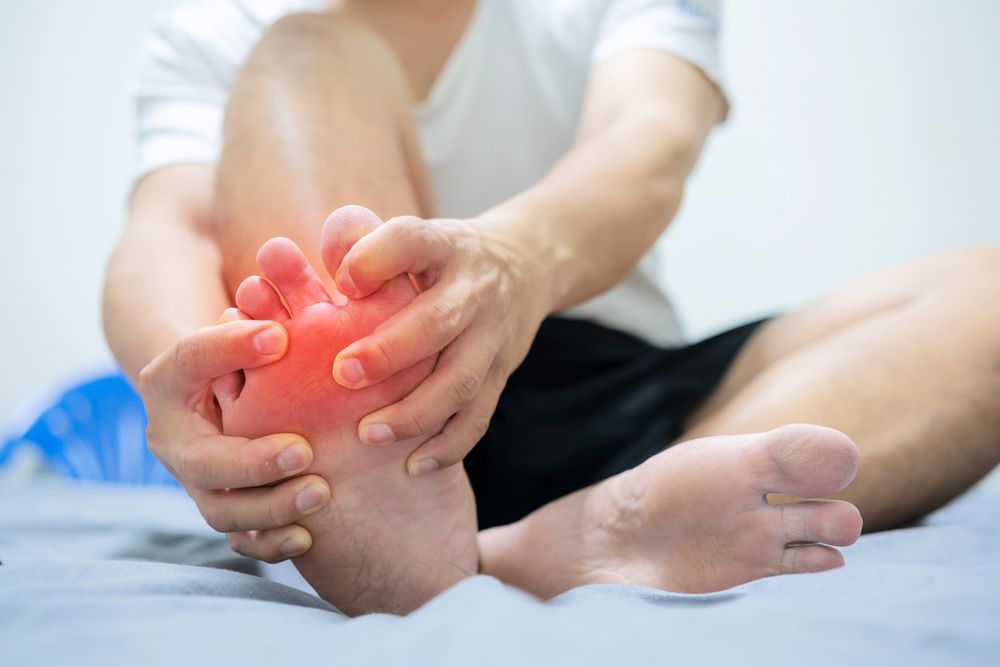Gout Study
What is Gout?
Gout is a common form of inflammatory arthritis which is characterized by sudden and severe attacks of pain, swelling and tenderness in the joints, commonly at the base of the big toe. It is a common and complicated form of arthritis that can affect anyone. A gout attack occurs suddenly, often waking people up in the middle of the night with intense burning pain as if their joints were on fire. The affected joint may quickly become so tender and swollen that event the slightest amount of weight or pressure can be unbearable.
Symptoms include:
- Intense joint pain
- Discomfort that can last from a few days or up to a week
- Redness, inflammation and tenderness
- Limited motion with a warm sensation
Gout is a form of arthritis that develops when urate crystals build up in a person’s joint, causing a sudden severe episode of pain, tenderness, redness, warmth and swelling. These urate crystals form when the body has a high level of uric acid. Because urates are a biproduct of purines (a substance found naturally in the body), certain foods and health conditions may put certain people at risk. If too much uric acid is produced, a sharp, needle-like urate crystal could develop in a joint or surrounding tissue, in turn causing pain and inflammation.
Factors that increase the uric acid level in your body (the cause of Gout) include:
- Diet. Eating a diet that involves a large consumption of meat, seafood, and heavily sweetened beverages may also put people at risk. Alcoholic beverages are especially known for being a risk factor.
- Obesity. If you are overweight, your body will produce more uric acid.
- Medical conditions. Certain conditions can increase your risk of Gout. These include high blood pressure, diabetes, metabolic syndrome, and heart and kidney diseases.
- Certain medications. There is a link between hypertension treatments and high uric acid levels.
- Family history and age/sex. It primarily occurs in males between the ages of 30 and 50, while women develop signs and symptoms after menopause.
If you have the following, you may qualify for our clinical study:
- Between the ages of 18 and 85
- Have been diagnosed with gout
- Have not been diagnosed with rheumatoid arthritis or xanthuria.
Compensation up to $2,300.00

Be part of our Gout study!
Please fill out the form below to get in contact with MediSphere if you'd like to be part of our current medical studies.
Gastroparesis Contact Form
We will get back to you as soon as possible.
Please try again later.
Address
Hours
Mon-Fri: 7:30am - 5:00pm
Sat-Sun: CLOSED




